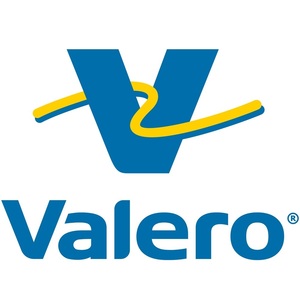Valero reports strong Q1 for biofuel segments

April 27, 2023
BY Erin Krueger
Valero Energy Corp.’s renewable diesel segment set a new sales volume record during the first quarter while its ethanol segment reported a profitable three-month period with higher production volumes. The company is also progressing with plans to produce sustainable aviation fuel (SAF).
Valero’s renewable diesel segment consists of its Diamond Green Diesel joint venture, owned in partnership with Darling Ingredients. The segment reported $205 million of operating income for the first quarter, up from $149 million during the same period of last year. Segment sales volumes averaged 3 million gallons per day during the three-month period, up 1.3 million gallons per day when compared to the first quarter of 2022. Valero attributed the higher sales volumes to the impact of additional volumes from the startup of the DGD Port Arthur plant in Texas during the final quarter of last year. Homer Bhullar, vice president of investor relations at Valero, said sales renewable diesel sales volumes for 2023 are expected to reach approximately 1.2 billion gallons.
Advertisement
Advertisement
During an earnings call held April 27, Valero Chairman and CEO Joe Gorder discussed plans to implement SAF production at the Port Arthur facility. The joint venture in January approved a project that will upgrade approximately 50 percent of the plant’s current 470 MMgy capacity to SAF. According to Gorder, the conversion project is expected to be complete by 2025.
Valero’s ethanol segment reported $39 million of operating income for the first quarter, up from $1 million during the same period of 2022. Ethanol production volumes averaged 4.2 million gallons per day during the quarter, up 138,000 gallons per day when compared to the first quarter of 2022. Moving into the second quarter, Valero expects production volumes to be maintained at 4.2 million gallons per day, according to Bhullar.
Eight of Valero’s 12 ethanol plants are expected to be anchor shippers on the proposed carbon sequestration project under development by BlackRock and Navigator. Gorder said work on that project is progressing and expected to begin startup activities in late 2024. Participation in the carbon capture and sequestration (CCS) project is expected to lower the carbon intensity (CI) of Valero’s ethanol, improving the margin profile and competitive positioning of the company’s ethanol business, according to Gorder.
Advertisement
Advertisement
Overall, Valero reported net income attributable Valero stockholders of $3.1 billion, or $8.29 per share, up from $905 million, or $2.21 per share, for the fourth quarter of 2022. Adjusted net income was $3.1 billion, or $8.27 per share, compared to $944 million, or $2.31 per share.
Related Stories
The U.S. Energy Information Administration maintained its forecast for 2025 and 2026 biodiesel, renewable diesel and sustainable aviation fuel (SAF) production in its latest Short-Term Energy Outlook, released July 8.
XCF Global Inc. on July 10 shared its strategic plan to invest close to $1 billion in developing a network of SAF production facilities, expanding its U.S. footprint, and advancing its international growth strategy.
U.S. fuel ethanol capacity fell slightly in April, while biodiesel and renewable diesel capacity held steady, according to data released by the U.S. EIA on June 30. Feedstock consumption was down when compared to the previous month.
XCF Global Inc. on July 8 provided a production update on its flagship New Rise Reno facility, underscoring that the plant has successfully produced SAF, renewable diesel, and renewable naphtha during its initial ramp-up.
The USDA’s Risk Management Agency is implementing multiple changes to the Camelina pilot insurance program for the 2026 and succeeding crop years. The changes will expand coverage options and provide greater flexibility for producers.
Upcoming Events










